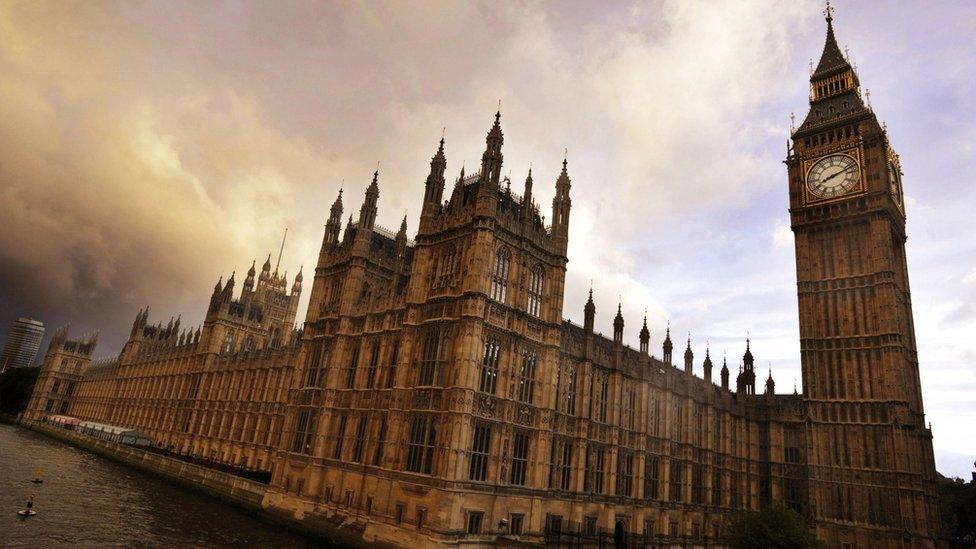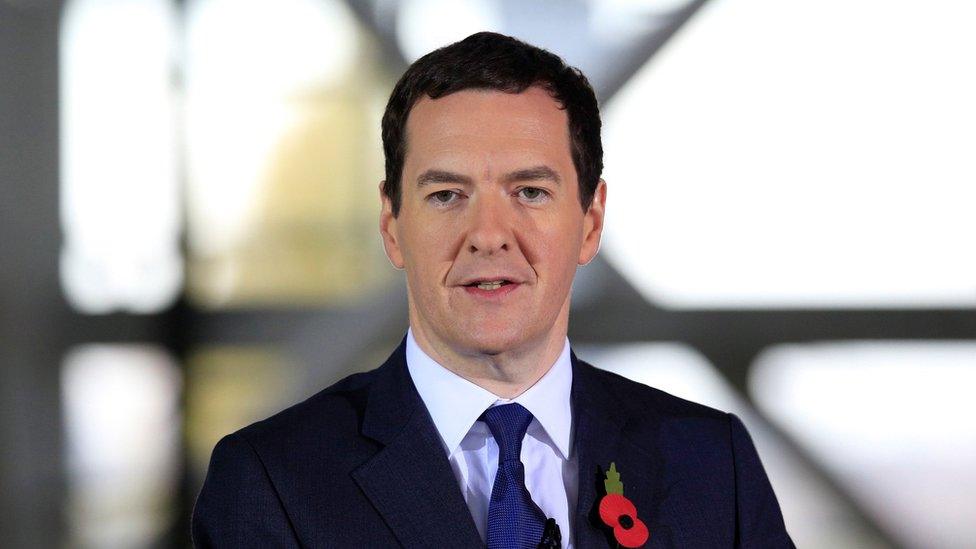Spending Review: Osborne faces economic and political test
- Published

It's a big day for the government, a big day for the chancellor and - while not every day in Westminster feels like it - it's a big day for the country.
George Osborne is not just standing up to make a few tweaks to public spending here and there, not just to make a political statement, but to set out the size and shape of the state for the next five years, in a time when money is tight and he has little room for manoeuvre.
The government wants to show the country it has a clear mission, and a determination to balance the books in an effective and coherent way.
That means making choices and deciding priorities.
Ministers in the majority Conservative government believe their ability to set priorities ought to be both a strength and an opportunity.
This won't be a Spending Review, they say, that displays an attitude of cutting a little bit here and there, moving money around the balance sheet to try to smooth out the pain.
Instead they see it as a programme of strategic cuts that, while difficult, add up to something: a country where work is rewarded, where anyone who wants to get on is helped to do so, and where the state has a careful approach to spending taxpayers' money, using it judiciously where it helps and not being afraid to scrape it back where it does not.

But choosing priorities - not just protecting but substantially increasing spending on areas like health, significant new spending on house building including billions going directly to house builders to encourage them to get spades into the ground, and retaining what many see as generous welfare payments to the older generations - inevitably means others will lose out.
No minister would argue that doesn't cause political pain.
Bitter experience
This spending review will mean, for example, some police officers disappearing from forces around the country, some families taking hits to their incomes through changes to welfare, or some grants to business being cut back.
Each cut will be analysed in public, just as it has in recent weeks been argued over in private.
And with each saving comes a political risk.
As the chancellor knows from bitter experience, the details in statements like these can blow up unpredictably into political problems.
Rebels to the government's planned cuts to tax credits are hopeful of pretty substantial changes. Speculation in Westminster suggests pulling back cuts of more than £1,000 a year to some families' incomes to £300 or £400.
The actual details are being kept tightly under wraps.
But be in no doubt, the decisions the chancellor has made in recent weeks will be felt around the country.
He faces an economic test of trying to stick to his own rules on spending - not just getting the books back into balance but into surplus by the end of the Parliament.
It is a political test too.
Hefty challenge
Ministers have consistently expressed their desire to make the Conservatives the party of the centre ground, standing up for the so-called "strivers", making their party the natural home for the mythical swing voters of Middle England.
But the pressure is on to make a programme of cuts meet that goal.
The Spending Review is a hefty challenge for the new Opposition too.
Labour has an opportunity to show they are capable not just of agreeing positions among themselves in order to make an articulate case, but also that they are up to the job of providing proper scrutiny of the government's biggest decisions.
After a very shaky few weeks for Jeremy Corbyn's Labour, it is not certain they'll be able to do that.
Labour, the SNP and the Lib Dems face a government fresh from an election victory that believes - especially on the economy - that it has a mandate to act.